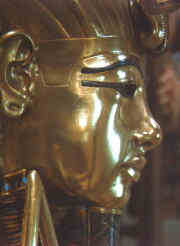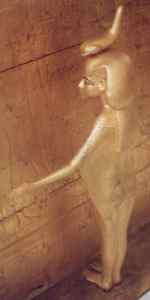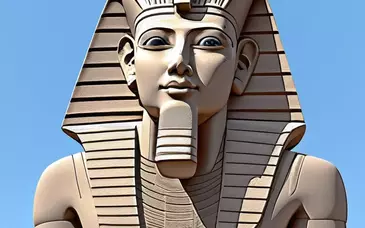
King Tutankhamun was, until the discovery of his tomb, a fairly insignificant and little known king from the 18th Dynasty. Even in spite of the amazing discoveries made in his tomb (KV62) we still have very little information about him. Surviving evidence indicates that he succeeded Smenkhkare and was the last of the true Amarna pharaohs. He grew up in the royal palace at Akhetaten, but during his reign power was switched away from the city of Akhetaten back to Thebes.
It is very likely that Tutankhamun had very little real power at this time. He grew up and spent his childhood at Akhetaten, where the only worship would have been of the Aten. For this reason he would probably have had little experience of the other traditional gods. It is likely that the return to the old ways after the death of Akhenaten instigated by the priesthood,who would have welcomed the possibility to regain the lands and power they had lost.


There are several objects discovered in the tomb of Tutankhamun which show clearly the state of flux which the country was in during his short reign. Two examples are shown here, the goddesses Isis and Selkis. The statues are in the more natural Amarna style, but the images on the side of the shrine are in the more orthodox style.
This could possibly indicate that the statues were made much earlier than the shrine, and are perhaps another example of Smenkhkare's funerary goods which were reused.
